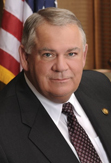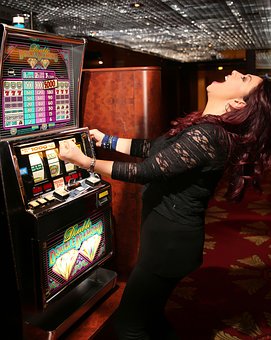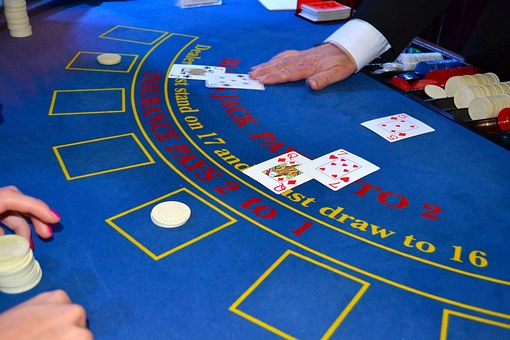Gambling seems to be almost part of our daily lives.
Many Georgians buy a lottery ticket, especially when the jackpot climbs.
Some play poker for small stakes, and NFL games draw plenty of bets. And some folks from the Peach State take trips to casinos, which can be as far away as Las Vegas or as near as Alabama or North Carolina, there is a list with the best casinos, check it out and start playing today.

The growth of legalized gambling has been a worldwide phenomenon in the past few decades. One example of this is Georgia, which after decades of staunch opposition to games of chance, launched a lottery in 1992.
This year, the Georgia Legislature is considering proposals that would legalize the operation of two resort-style casinos in the state.
But would such a change lead to more “problem gamblers”? And how are such conditions treated?
According to a North Carolina sports betting study, most gambling, the experts of the best UK bookmakers say, is not connected with a personal problem, but is a relatively harmless amusement. A Stanford Graduate School of Business article suggests “most people have loss [ financial] thresholds they will not cross when gambling.” These people know when to quit and they don’t get hurt, financially or otherwise.
But studies show that 1 percent to 2.2 percent of Americans are problem gamblers.
Compulsive gambling, also called a gambling disorder, is the uncontrollable urge to continue gambling despite the toll it can take on your life, according to Mayo Clinic.
The condition is complex and often difficult for non-gamblers to grasp.
Like people addicted to alcohol and drugs, those who are compulsive gamblers need to recognize their problem before they can do anything about it. Many, unfortunately, delay seeking professional help.

“Gambling disorder criteria is very similar to criteria for substance use disorders,” says Dr. Michael Fishman of Atlanta, who specializes in addiction medicine. Gambling addiction is, however, “considered a ‘process addiction’ rather than a chemical addiction,” says Fishman.
A process addiction is a compulsive behavior, such as sexual addiction, eating disorders and spending addictions, according to American Addiction Centers.org. This impulse control problem demonstrates features similar to other addictive disorders, without involving the use of an intoxicating drugs or needles.
The term “addiction” is no exaggeration. Gambling can stimulate the brain’s reward system much as drugs or alcohol can, and people can become hooked on that feeling.
Compulsive gamblers may repeatedly deny there’s a problem. They often find themselves drowning in debt and failing in their personal relationships. If people have problems with compulsive gambling, they may continually chase bets that lead to losses, hide their behavior, deplete their savings and sink into debt. Some even resort to theft or fraud or other crimes to support their addiction, according to many experts.
State looks at the casino option
Meanwhile, at the Georgia Legislature, there are concerns about preserving the funding for the lottery-supported HOPE scholarships, and members want to attract more tourists to the state. Casinos, which theoretically could address both issues, appear to be getting serious consideration.
Some argue that casinos will also reveal latent gambling issues in Georgia that (up until now) have not been significant. The state may have a potential cadre of compulsive gamblers.

Fishman says easier or closer access to casinos could result in more problem gambling here. “Only studies will show if it turns out that way,’’ he says.
Like many other states, Georgia currently defines gambling as betting upon the final result of a game or contest, or games played with cards, dice, or balls, in order to win money or other things of value.
With the exception of the Georgia State Lottery — which is government-sanctioned and supports education and scholarships — most gambling is illegal in the state. This includes betting on professional or other sports teams, and holding a small poker game for money. Illegal gambling can also include holding a lottery or raffle that is not for an approved charitable purpose.

Of course, most small-time gambling of this kind goes unnoticed, though it remains against Georgia law. Authorities, though, vigorously pursue highly organized illegal gambling.
In an early January press conference, Georgia House Speaker David Ralston (R-Blue Ridge) said gambling is a complex issue. First, Ralston said, “We have to decide if we’re going to expand gambling [and] the second issue is what model does it take?”
Ralston said he’s getting all kinds of suggestions on what to do with the money from gambling, including for HOPE or a needs-based scholarship. But he also said he’s heard “[that] we ought to use some of the proceeds for substance abuse problems.”
Ralston suggested that not all decisions can be made in this legislative session. And he said, “I’m still not sure that casinos in Georgia are consistent with where we want to be as a state.”
Recently the number of online casinos where Bitcoin can be used has increased in the last few years, learn more about how can you do it and which are the casinos that are using Bitcoins.
Treating the wager habit
Professionals tend to treat gambling disorders with a cognitive behavioral approach — similar to treatment of substance abuse. Cognitive behavioral therapy is a common type of “talk therapy.”
Patients work with a mental health counselor (psychotherapist or therapist) in a structured way, generally attending a limited number of sessions.
“Compulsive gambling is considered to be an addiction,” says Stan Hibbs, psychologist and life coach in Dunwoody. “The potential risk versus the potential reward appears to create a palpable high for those who are addicted,” says Hibbs.

“People tell me I have a bad habit of gambling; (pause) . . . but, I’ll bet I don’t,” said Stephen Colbert recently on television. But as old as that joke is, it had Colbert’s audience laughing when he told it.
From a comedian’s perspective, making light of serious problem is easy. But from a psychologist’s viewpoint, it’s serious business.
A few years ago, non-governmental entities gathered national data to better inform individual state efforts and track national trends.
Georgia ranked 26th among the 50 states in terms of per capita public funds invested in problem gambling counseling services.
A study by Georgia State University shows “rates of gambling addiction for criminal offenders far exceed the rates found among non-offenders,” highlighting a different problem.
On average, an estimated 50 percent of those affected by gambling problems commit crimes in order to support their addiction is discussed in the 2012 GSU study. There appears to be a need to educate the public about gambling and current laws.
For most people, gambling is a diversion that they indulge in only occasionally and spend little money on. But it becomes a problem when it interferes with other aspects of life.
Clinical psychologist and author of “Inside the Criminal Mind,” Stanton Samenow, says the link between gambling and mental illness bears closer scrutiny.
“Many people gamble occasionally as a form of entertainment,’’ he says, with gambling injecting a bit of excitement into their lives.

Problem gambling can appear to be an “illness,” says Samenow, interviewed by phone from Alexandria, Va. “But it really amounts to a series of choices that a person makes.”
For a significant minority of gamblers, gambling takes on the quality of pursuing “the big scores” in which one outsmarts others, says Samenow.
Samenow suggests there are criminal thinking processes going on in the minds of some compulsive gamblers. Like many criminals, people who can’t control their gambling may have unrealistic expectations about life, seek large rewards for little effort and tend to engage in lying and betrayal of trust.
Current research on compulsive gambling focuses on the interplay of dopamine in the midbrain.
“As in substance-related disorders, medications are being explored for treatment of gambling disorder,” says Fishman.

“There are always choices in life,” says Samenow. He suggests the frequent gambler can make a series of choices to abstain and live a responsible life.
Meanwhile, casinos in Georgia are not just around the corner, if they come at all.
The idea would have to pass the General Assembly by a two-thirds majority, then go to the voters as a proposed constitutional amendment. There are many issues to debate, not only the social effects of gaming but whether Georgia casinos would be profitable enough when there are so many out-of-state competitors close by.
Ultimately, it’s up to Georgians.
Judi Kanne, a registered nurse and freelance writer, combines her nursing and journalism backgrounds to write about public health. She lives in Atlanta.

